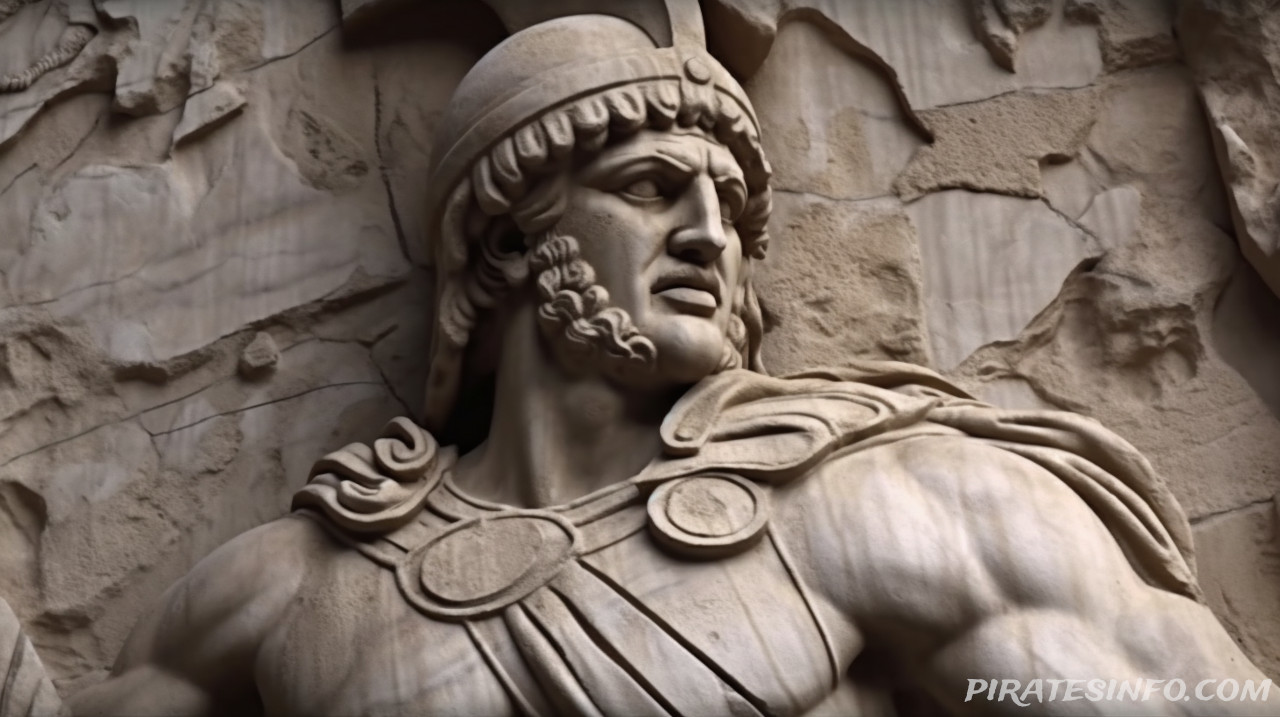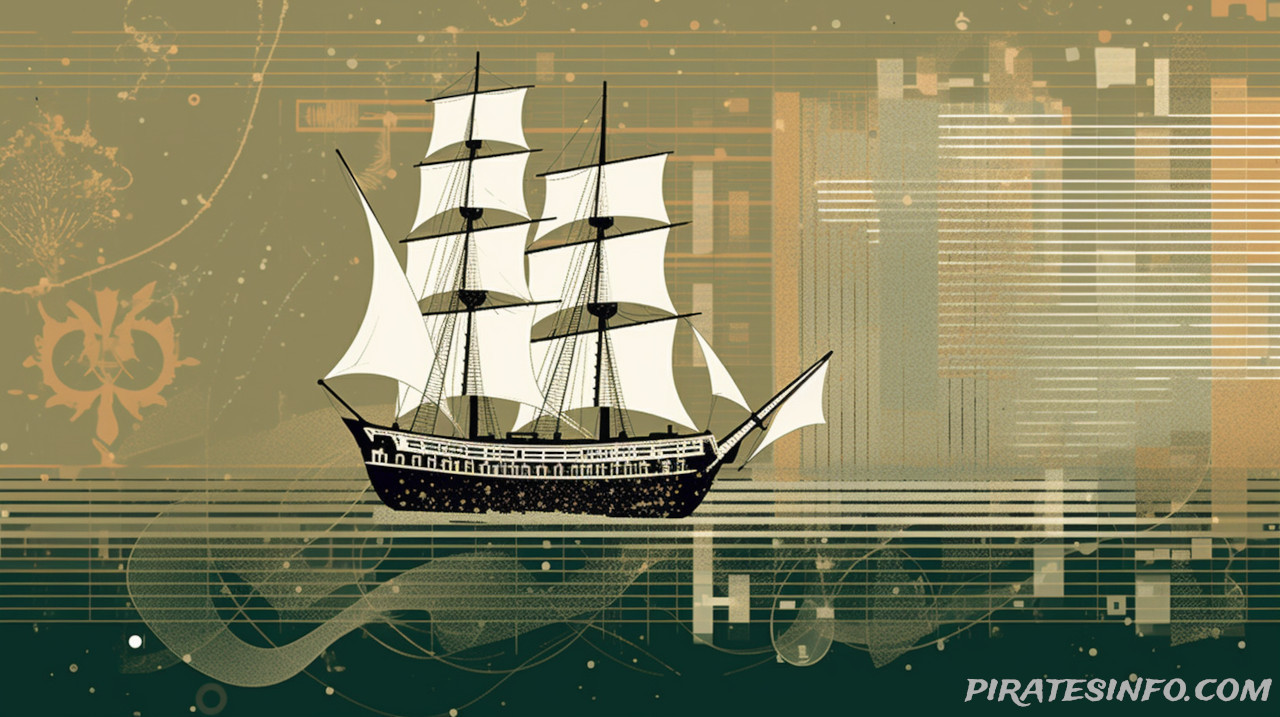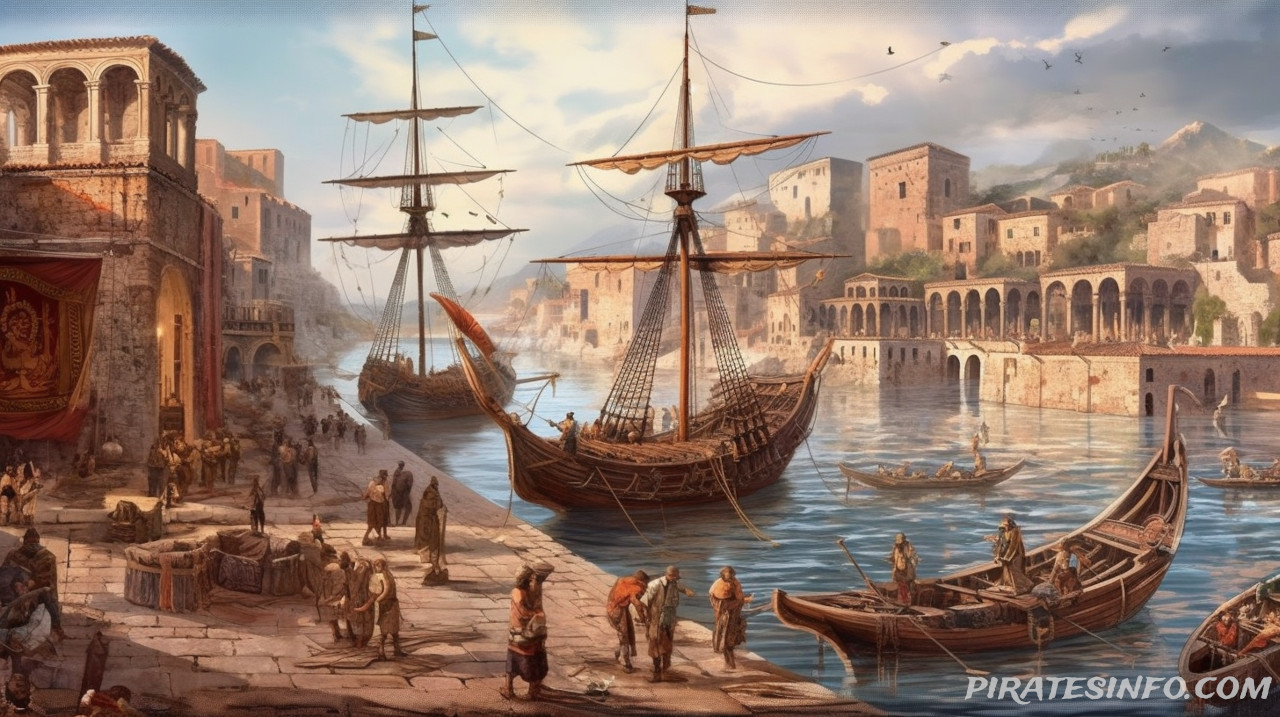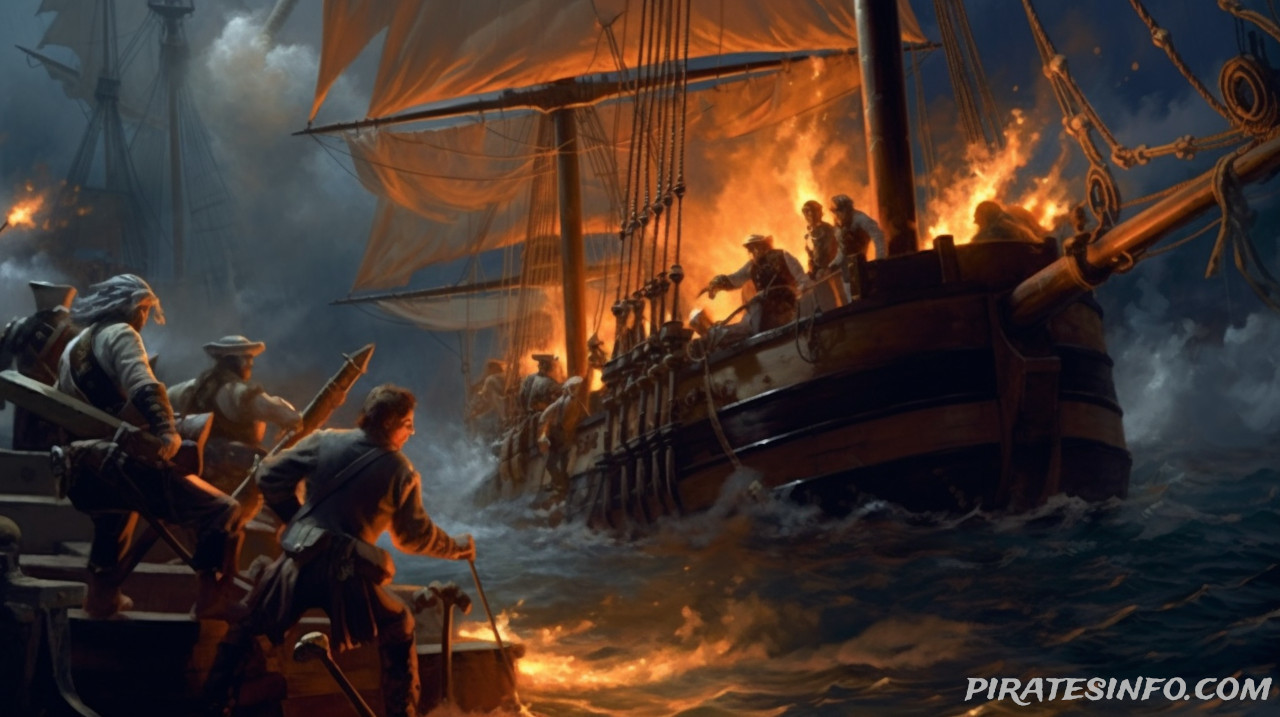
History of Piracy
Join us as we set sail through the turbulent waters of piracy's vast history. From the earliest seafaring marauders to the covert operations of modern piracy, we trace the evolution of maritime rebellion. Uncover the shifts in naval power, legislation, and socio-economic impact woven into this complex tapestry. Get ready to navigate the broad seascape of pirate history, a journey as fascinating as it is profound.
Once ye've finished this section, remember, a vast sea of all things pirate-y awaits! Set course for our pirates main page, where we've charted everything from swashbuckling sagas to hidden treasures.

Influence and Impact of Piracy
In the economic seascape and cultural landscapes, piracy has played an unexpectedly transformative role. Economically, pirates were the inadvertent instigators of maritime innovation. Their disruptive activities sparked enhancements in ship design, navigational technology, and maritime security measures, effectively catalyzing evolution in maritime trade. Culturally, pirates have left an indelible mark. They are not merely the subject of catchy sea shanties or creators of colorful parrot-themed trends. Pirates, embodying rebellion, freedom, and non-conformity, are deeply embedded in our popular culture. From the iconic adventures of Treasure Island to the screen exploits of Jack Sparrow, pirates personify our fascination with the lawless, daring outliers of society.
Politically and technologically, pirates have shaped our world in surprising ways. Despite their lawless image, pirate societies often functioned on principles akin to democracy and egalitarianism, a bold contrast to the rigid hierarchies of their era. These high-seas democracies, with their codes and shared responsibilities, indirectly influenced modern conceptions of leadership and shared governance. Additionally, the influence of piracy has survived into the digital age, marking its territory in technology. From the contentious battles over intellectual property rights to the tug of war between encryption and government surveillance, the spirit of piracy sails unabated in the cyber-seas of the 21st century. Pirates, it seems, continue to shape and challenge our world in their own audacious ways.

Ancient Piracy: Antiquity to Middle Ages
As we unfurl the maps of ancient piracy, our journey starts in the Mediterranean Sea. The illustrious ancient civilizations of Greece and Rome weren't just about philosophy, empires, and epic tales of gods and heroes - they were also home to some of the earliest documented pirates. The Sea Peoples, a mysterious seafaring confederation, were said to have terrorized the Mediterranean coasts around 1200 BC, sowing chaos and toppling kingdoms. A few centuries later, the Illyrian pirates were a constant thorn in the side of Greek and Roman sea trade, proving that a well-oiled trireme wasn't just good for warfare, but also for a bit of illicit plundering.
As the tides of history turned towards the Middle Ages, piracy underwent a significant evolution. The Vikings, Norse seafarers, were the pirates of their day, albeit ones with a penchant for horned helmets and longships. These Nordic mariners were notorious for their raids and expeditions across the coasts of Europe, leaving their mark from the monasteries of Ireland to the grand Byzantine Empire. Meanwhile, in the warmer climes of the Mediterranean, the Barbary Corsairs began their reign, their swift galleys becoming a dreaded sight along European coasts. While not pirates in the strictest sense, their state-sponsored privateering blurred the lines, illustrating that one era's pirate could be another era's sanctioned mercenary.

Golden Age of Piracy
As the hourglass of time tipped into the late 17th century, the stage was set for the most storied era in the history of piracy: the Golden Age. This was a time when infamous figures like Blackbeard and William Kidd roamed the waters, their names whispered in both fear and awe. The Caribbean became the backdrop for this unruly maritime drama, as buccaneers took advantage of the tumultuous political climate, the bustling trade routes, and the many hidden coves perfect for stashing ill-gotten gains.
The Golden Age was not simply a time of pillaging and plundering - it also saw the birth of a unique and surprisingly democratic pirate society. Crews often elected their captains, booty was divided with a semblance of fairness, and pirate codes dictated law and order amidst the chaos. These high-seas anarchists wielded their own form of justice, creating an appealing alternative for many who sought escape from oppressive conditions on land. Despite the short-lived nature of this period, the Golden Age left an indelible mark on our collective consciousness, shaping our romanticized image of pirates that continues to capture imaginations even today.

Modern Piracy
As we sail into the choppy waters of the 20th and 21st centuries, the image of piracy shifts dramatically. Gone are the days of eye-patches and parrots. Modern piracy looks quite different, yet echoes the same audacious spirit of its seafaring predecessors. The hotbed of this activity has primarily been around the Horn of Africa, particularly off the coast of Somalia, where political instability has given rise to a new generation of pirates.
These modern marauders wield automatic weapons instead of cutlasses, and pilot speedboats instead of galleons. They employ tactics such as hostage-taking and ransom demands, reflecting a darker and more desperate side of piracy. Alongside this, the rise of the digital age has birthed another form of piracy: cyber piracy. Intellectual property theft, illegal streaming, and cyberattacks are now as much a part of the piracy lexicon as treasure maps and doubloons. In this new era, piracy continues to adapt and evolve, just as it has done throughout history, proving once again that the spirit of piracy is as resilient as it is relentless.